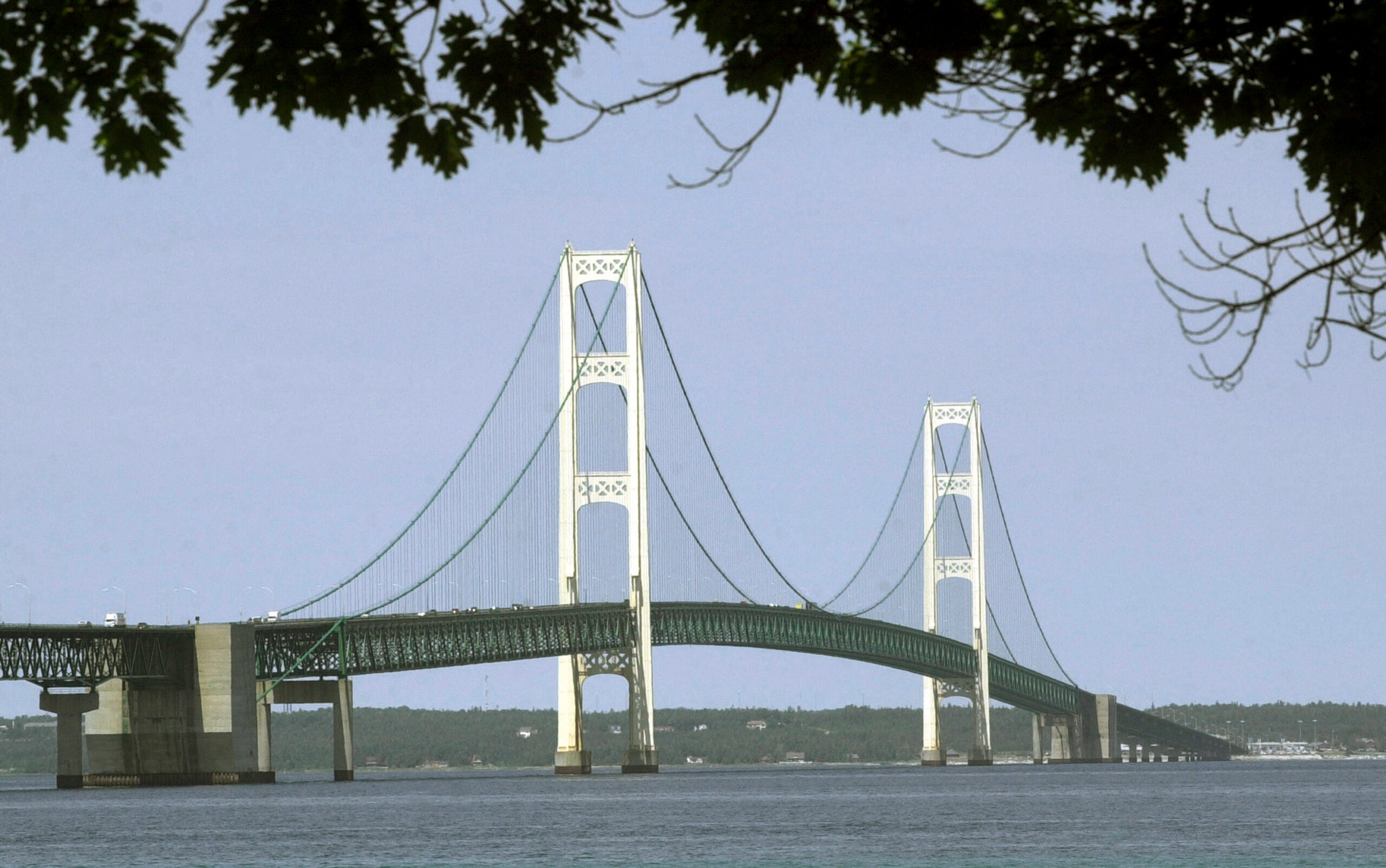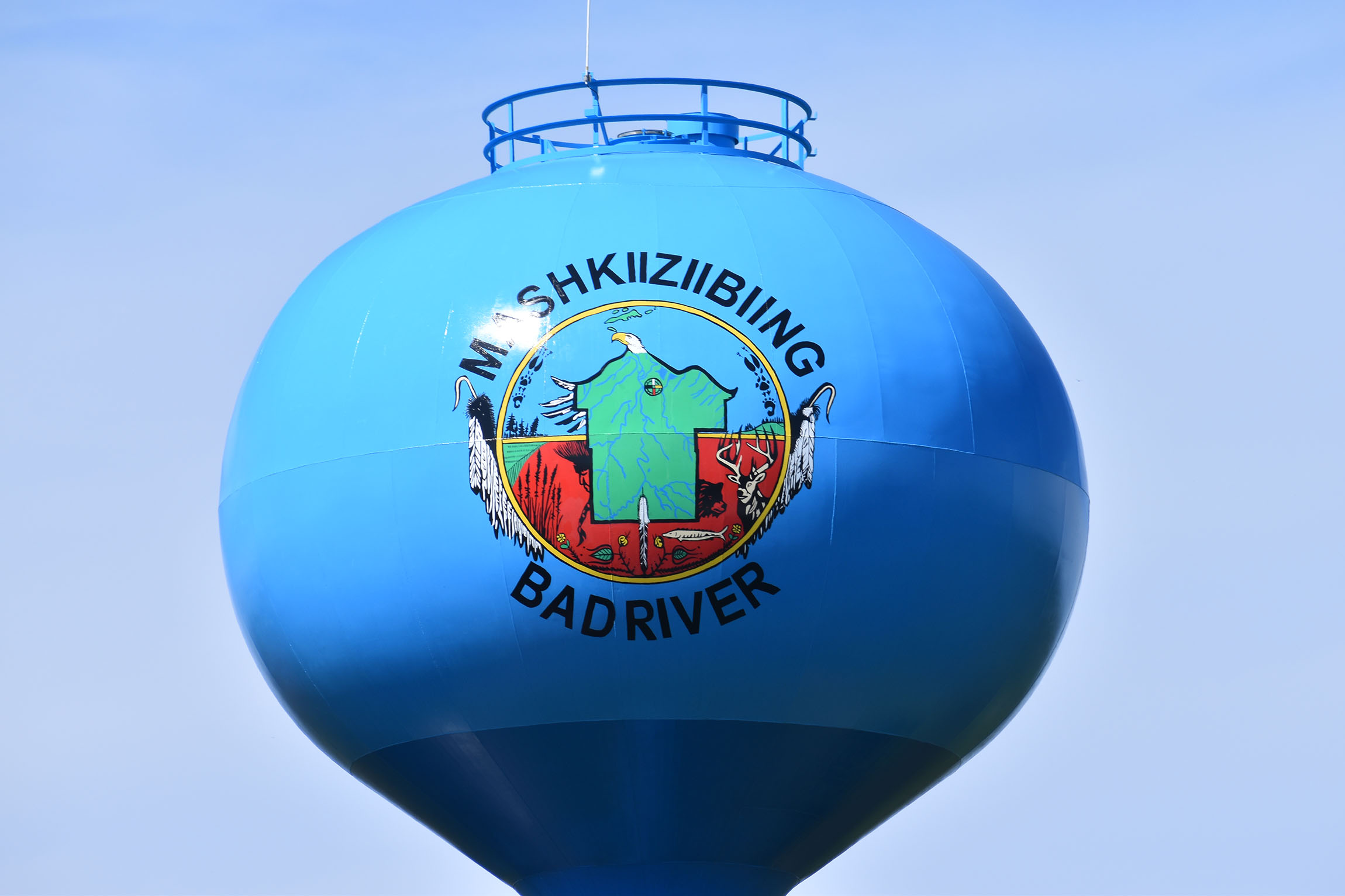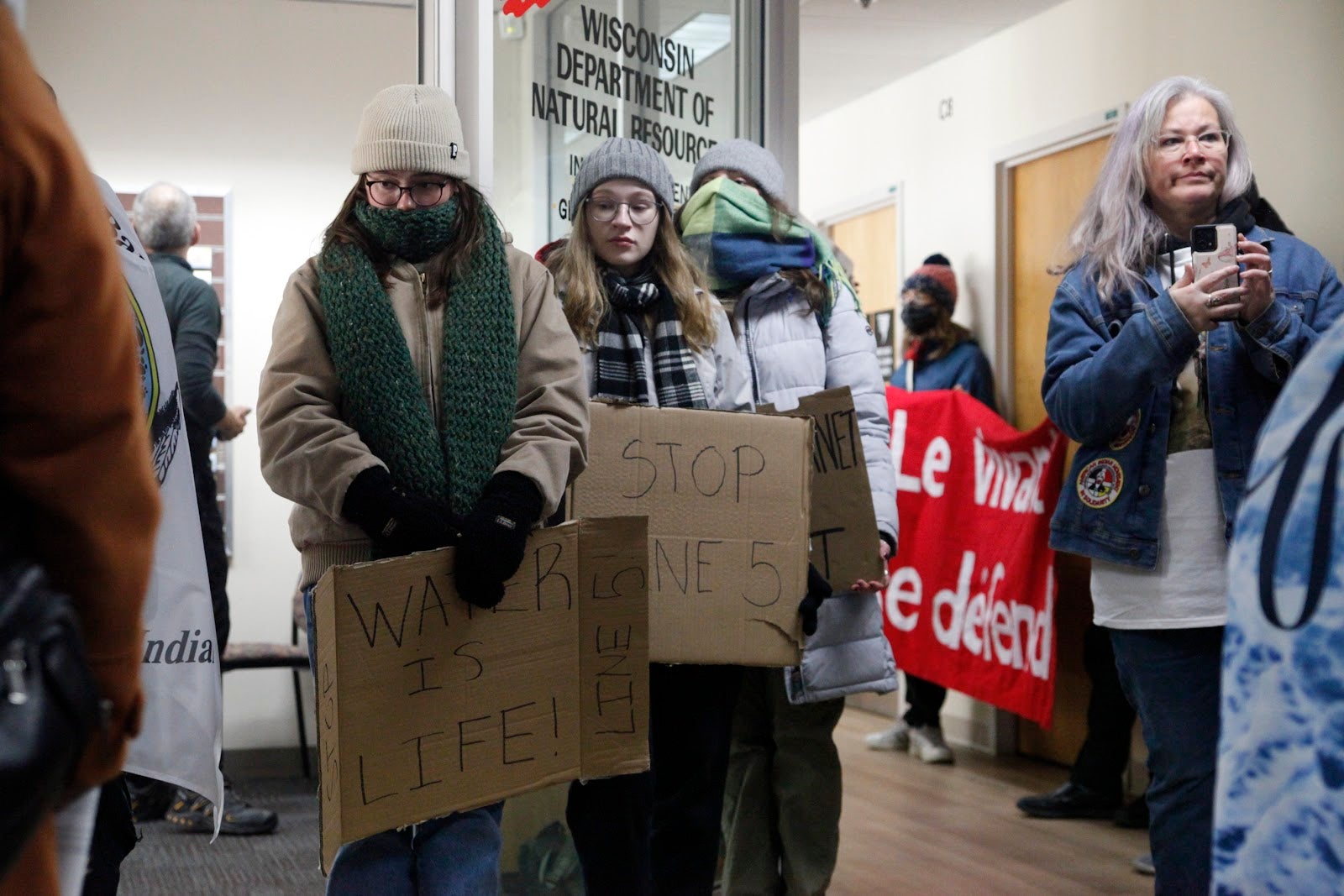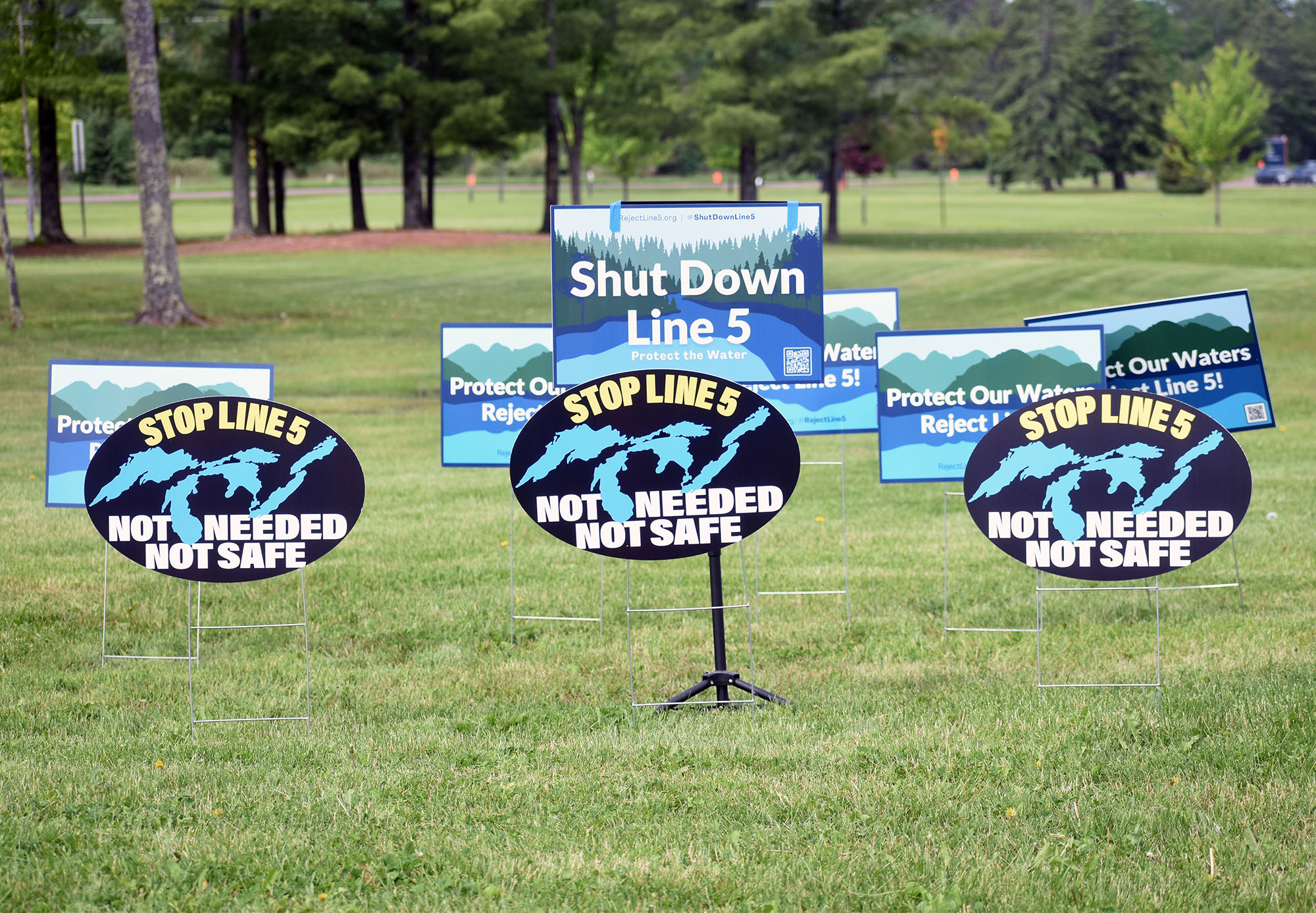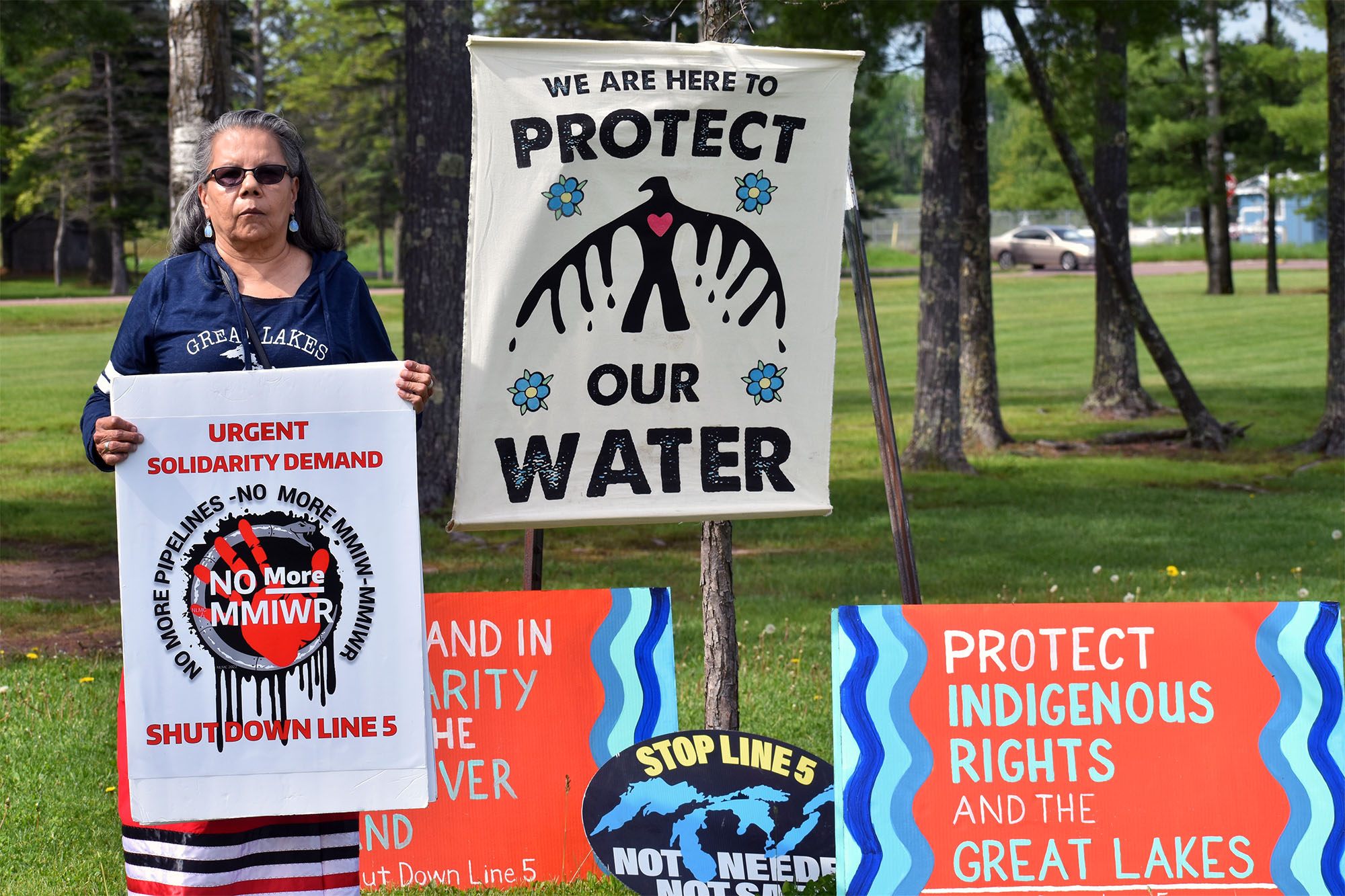State environmental regulators issued key wetland and water permits Thursday for a project to reroute an oil and gas pipeline around a northern Wisconsin tribe’s reservation.
In 2019, the Bad River Band of Lake Superior Chippewa sued Canadian firm Enbridge in federal court to shut down and remove the 71-year-old Line 5 on tribal lands. In response, the company proposed a $450 million plan rerouting the pipeline around the tribe’s reservation.
Line 5 runs 645 miles from Superior to Sarnia, Ontario. It’s designed to carry up to 540,000 barrels of oil and natural gas liquids daily.
The permits issued by the Wisconsin Department of Natural Resources authorize Enbridge to build the pipeline across waterways and wetlands in the rerouted section. The new stretch of 30-inch pipe would run 41 miles around the reservation in Ashland and Iron counties.
The project would cross around 200 waterways and temporarily disturb 101 acres of wetlands. About 36 acres will be permanently cleared, and around a quarter of the wetlands are of “high” or “exceptional” value for water quality and flood protection, according to the DNR. Construction would also include blasting, horizontal drilling and trenching across wetlands and waterways.
Stay informed on the latest news
Sign up for WPR’s email newsletter.
“I’m angry that the DNR has signed off on a half-baked plan that spells disaster for our homeland and our way of life,” Bad River Band Chair Robert Blanchard said in a statement. “We will continue sounding the alarm to prevent yet another Enbridge pipeline from endangering our watershed.”
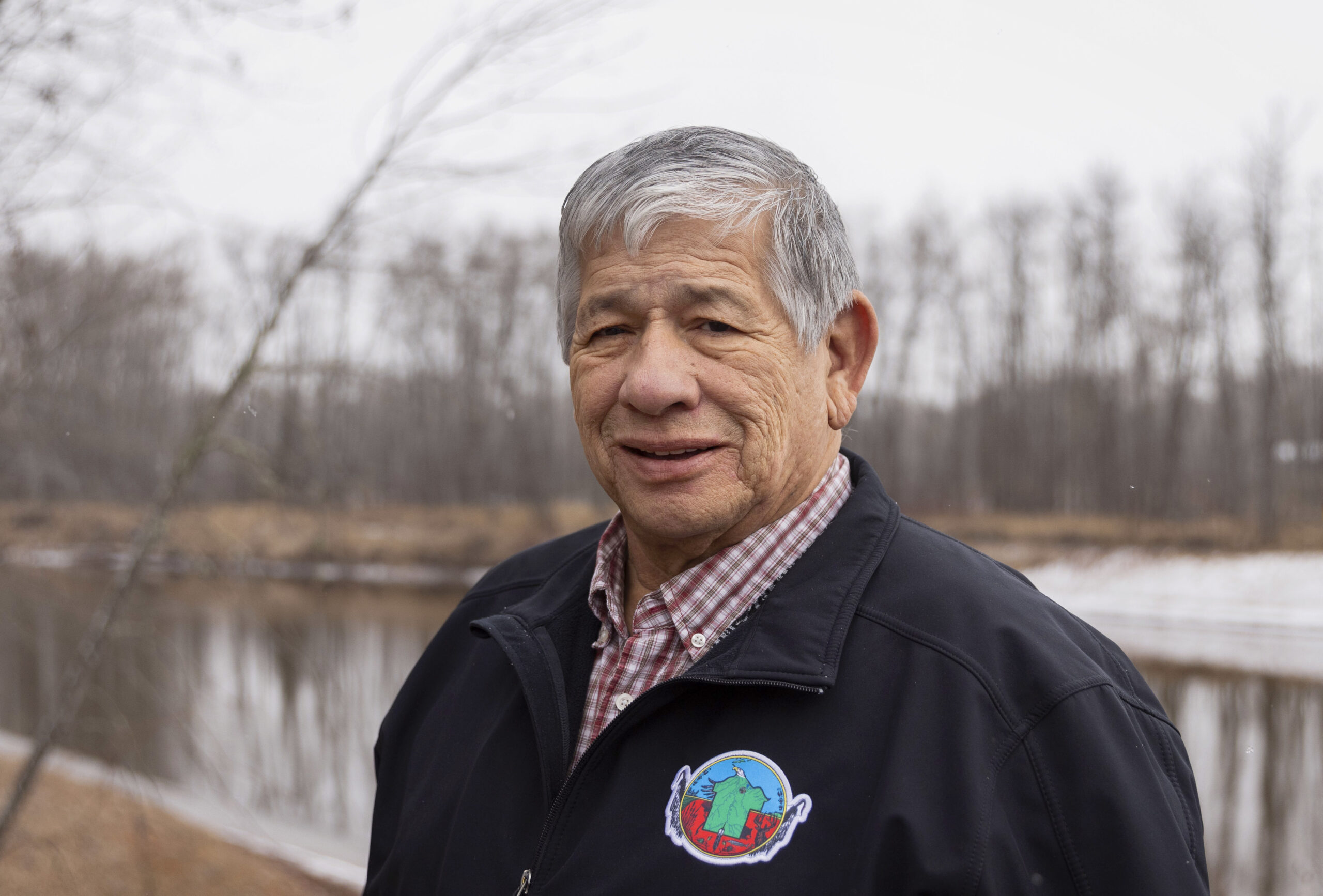
The permits contain more than 200 conditions to ensure the company meets state waterway and wetlands standards, according to the DNR.
Among them, Enbridge must notify the DNR of any violations to the permit or spills within 24 hours. The company must also limit blasting in wetlands, waterways and other sensitive resources to the greatest extent possible. It must keep spill response equipment at the entry and exit of workspaces prior to drilling to install any pipe. The permit also requires independent environmental monitors, who are approved by the DNR, to oversee construction.
Enbridge spokesperson Juli Kellner said in a statement that the permits are a major step for the project.
“The project will build a new segment of the Line 5 pipeline around the Bad River Reservation, send millions of dollars in construction spending into local communities, create over 700 family supporting union jobs, and preserve the flow of essential energy that millions of consumers in the region rely on every day,” Kellner said.
The company already has a contractor and landowner agreements secured for the project. Kellner said the company is ready to start building as soon as it receives all necessary approvals.
“We will be digging into the information that’s in these documents and evaluating our next steps for a legal challenge,” Earthjustice Senior Attorney Stefanie Tsosie, who is representing the tribe, told WPR. “Now, the federal agencies need to actually look at what will the impacts of the project be on the Bad River Band’s water quality standards.”
Enbridge still needs to obtain both state and federal permits before work can begin, including from the U.S. Army Corps of Engineers. In August, more than 150,000 people submitted comments to the Army Corps in opposition to the project compared to more than 14,000 people who signed a petition in favor of the Line 5 reroute.
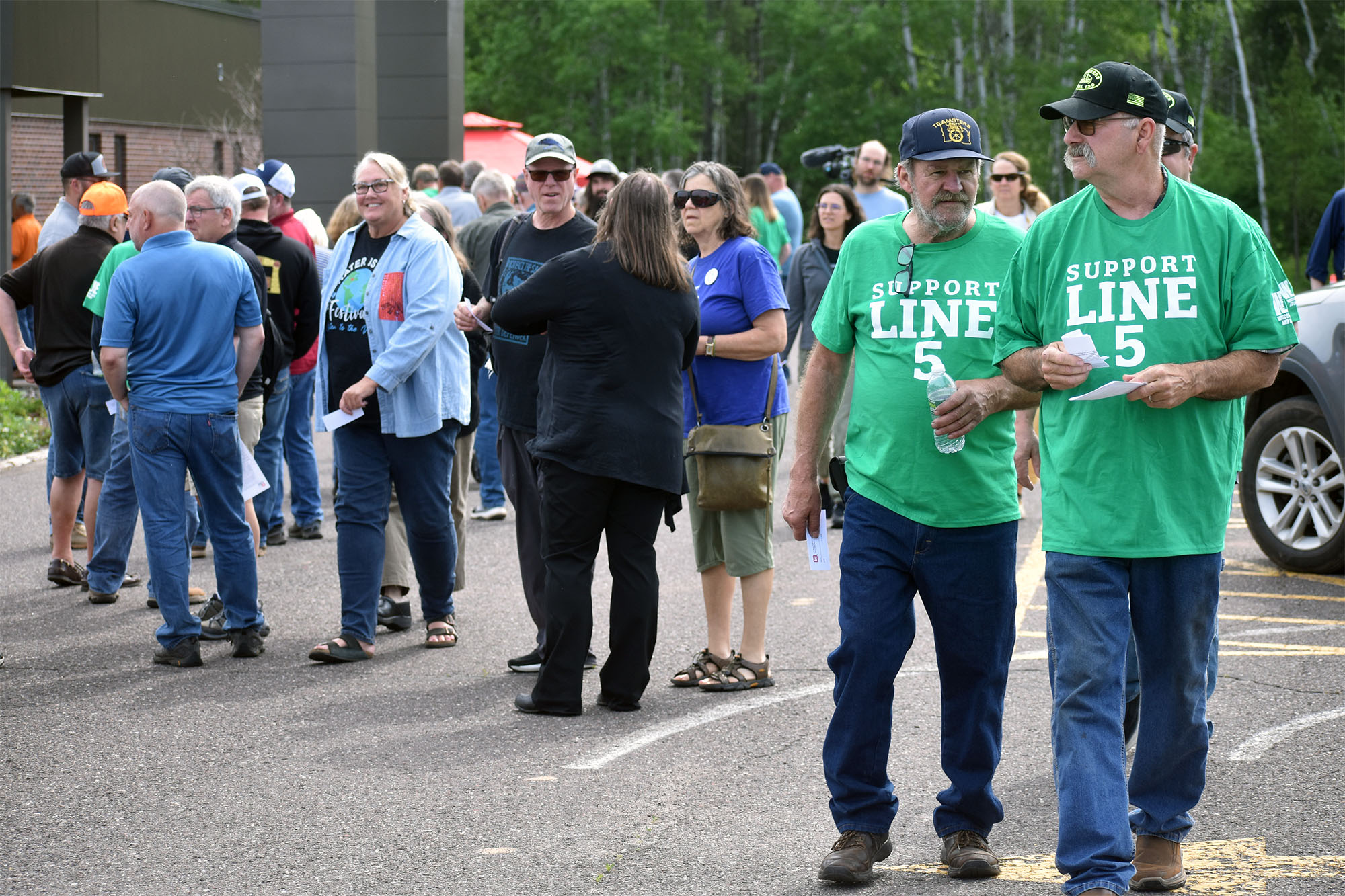
The Wisconsin Jobs and Energy Coalition praised the DNR for issuing the permits, which Enbridge first applied to obtain in 2020. The coalition represents labor, business and farm groups in Wisconsin. The project is projected to create a $135 million economic impact.
“Wisconsin farmers simply can’t do their jobs without the propane, diesel and gas made possible by pipelines like Line 5,” Wisconsin Farm Bureau President Brad Olson said in a statement. “The issuance of the DNR’s Line 5 permits is a huge step forward for our state’s farmers and the hundreds of thousands of people that depend on our agricultural industry to feed their families.”
Emily Pritzkow, executive director of the Wisconsin Building Trades Council, said in a statement the agency’s decision balances the state’s energy needs with environmental protection.
“The Line 5 relocation project is a win for Wisconsin workers, Wisconsin families, and the Wisconsin economy,” Pritzkow said.
Environmental groups condemned the move, including Clean Wisconsin and Midwest Environmental Advocates, which said they were prepared to challenge the permits.
“Wisconsin law makes it clear that projects causing harm to our waters must meet a high bar to move forward,” Clean Wisconsin attorney Evan Feinauer said in a statement. “Given the enormous impacts that construction of this pipeline would cause, we are skeptical that the proposed project meets these legal standards.”
Tony Wilkin Gibart, executive director of Midwest Environmental Advocates, said in a statement the project represents a threat to the health and safety of the state’s communities and natural resources.
“DNR’s decision to issue permits for the project ignores the serious concerns of thousands of people who have urged the DNR to reject Enbridge’s permit application,” Wilkin Gibart said.
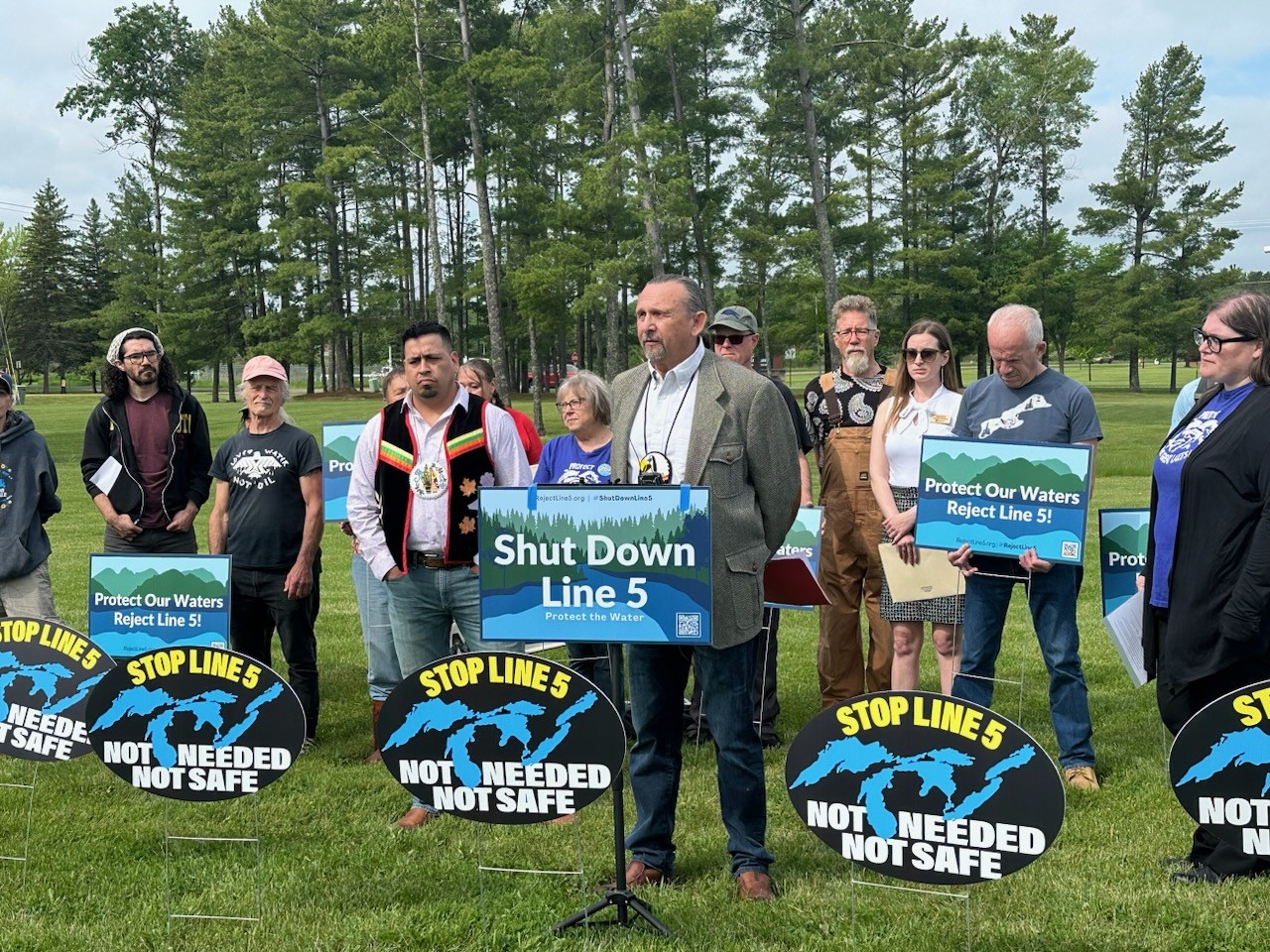
Enbridge and the Bad River tribe have been at odds for more than a decade after the company’s easements expired on a dozen tracts of land in 2013.
Last year, U.S. District Judge William Conley ordered the company to pay $5.15 million for trespassing on the Bad River tribe’s lands where its pipeline easements expired. He also ordered the company to shut down or reroute Line 5 where it’s illegally operating by June of 2026. Both the tribe and Enbridge are appealing that decision in the Seventh Circuit Court of Appeals, and a ruling is still pending.
There have been about 30 releases by Line 5 on land, spilling about 1 million gallons of oil. The company is responsible for the nation’s largest inland oil spills, including a 2010 spill that released more than 1.2 million gallons of oil into the Kalamazoo River. Enbridge has said it’s spent billions of dollars upgrading technology and safety protocols since the 2010 spill.
Under the permits, Enbridge must complete the project on or before Nov. 14, 2027.
Wisconsin Public Radio, © Copyright 2025, Board of Regents of the University of Wisconsin System and Wisconsin Educational Communications Board.

